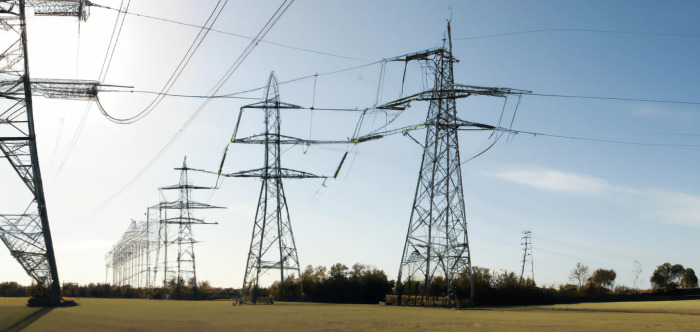Why Ofgem's remit change is a big, big deal for net-zero

On June 6, 2023, the UK Government published guidance regarding Ofgem‘s net-zero duty.
While that might not sound like much, our reaction was clear:
“For too long Ofgem’s remit has been past its sell-by date.
"Today’s decision remedies that position and ensures that the energy industry’s regulator is able to recommend more than just short sighted changes to the system.” (you can read the rest on or website).
Alongside other industry bodies, we’ve been calling for this action for years.
And it was to be the recently introduced Energy Security Bill which opened the door for it to happen, including as it does a provision related to the regulator’s net-zero role.
This move will give Ofgem the power to prioritise the UK’s transition to net-zero emissions by 2050 and ensure that the energy sector aligns with the government‘s ambitious climate goals.
But why is this such great news?
Well, Ofgem’s core role is to protect consumers in England, Scotland, and Wales by regulating businesses, from household energy suppliers to the owners of electricity cables.
It does this through measures including its price controls, which determine how much investment cost is added to consumer bills.
Simply put, if investing in new grid infrastructure we need to send renewable energy from where it’s generated to where it’s needed would cost today’s consumers too much, Ofgem won’t allow it.
Under current legislation, Ofgem’s role includes a general remit to cut greenhouse gas emissions in energy supply. But this change in remit means that Ofgem will now have to consider how its decisions can help the government achieve its net-zero targets.
We believe that this was a very much needed change, as the update of Ofgem’s legal remit to include net-zero will effectively support the required development of the grid ahead of demand, benefit regulatory decisions for renewable deployment, and provide the UK with a more flexible decision-making regulatory environment aligned with government priorities.
Again, simply put: if industry needs to build new pylons and cables to carry future green energy, we’ll now have a much better chance of being able to do so if we can show those pylons and cables will contribute to meeting net-zero.
We have continually proposed that Ofgem’s primary duty needs to be reformed to include net-zero to protect current and future consumers whilst supporting an economically efficient energy transition. We believe this will give the regulator a strong statutory basis for achieving the aims set out by the governments of the UK.
At present, the UK Government and devolved administrations have their own net-zero targets (Scotland’s is 2045). However, Ofgem as the regulator of the energy sector does not - while it is acknowledged that it will do much of the heavy lifting to deliver net-zero. This mismatch of objectives could not help but hinder a cost-effective and timely transition to net-zero overall.
It is also clear that beyond new regulatory frameworks, network companies would benefit from a new approach by Ofgem in terms of the “least regrets” decision-making to network approvals. That means allowing them to make investments which is affordable, provides maximum benefit and is low-risk in that the network company knows the grid capacity it builds will be needed in future.
Changing Ofgem’s approach to a more ambitious view of strategic investment approval will speed up grid buildout, help reduce the backlog of projects waiting to connect, give certainty to the supply chain, and most importantly, deliver on the decarbonisation and net-zero targets for the UK, alongside the economic and societal benefits associated with these goals.
Fundamentally, the UK needs clean, affordable power which delivers economic and environmental benefits to the whole country and a regulator which is allowed to deliver an energy system that will support that goal.
This decision is a big step on the road to delivering that aim.
- Blog by Stephen McKellar, Senior Policy Manager – Grid and Systems